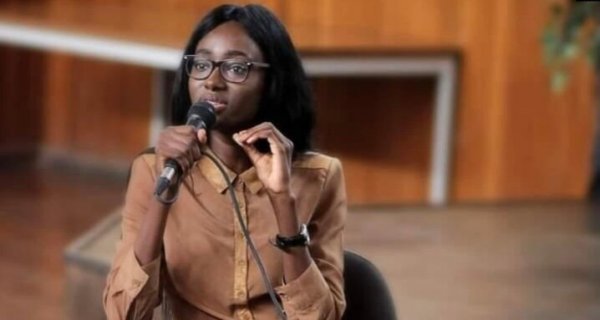Brazilian telenovelas, with the presence of many blacks on the small screen, made Maria believe that her experience on Brazilian soil would approach this scenario. But reality was tougher than fiction, and Maria's arrival in southern Brazil, in 2013, was accompanied by a feeling of discrimination.
"I faced some obstacles. It was complicated, I had never seen so many whites at once, especially as it happened in the south of Brazil. I thought it would be like what we see on television, with blacks mixed with whites, but in my class, I she was the only black woman. It was very difficult, "admitted the 27-year-old to the Lusa agency.
"There was also the accent issue. I have a more accented Portuguese Portuguese accent and there were some words considered pejorative for the Brazilian people, but for me they were quite normal. That also complicated a lot", she lamented.
Episodes of racism have been happening over the years, either because she is a black woman or because she is a foreigner.
"As a black woman, I feel that I always have to give more than is asked for and when I make a mistake, everything I did that is good is forgotten. Instead of highlighting the incompetence of that act, they put everything in person, and I lived it. I also went through the process. situation of getting on a bus, sitting next to someone, and the person just getting up and going to the other side ", he said.
At school she was no different and she felt, on many occasions, that she had no friends.
"I looked at these situations and thought it was not normal, but when I went to read and understand the social structure of the place where I lived, I knew it was all racism", reported the young woman, who lives in Florianópolis, state capital of Santa Catarina, in southern Brazil, a region that concentrated many European immigrants and where, today, almost 74 percent of the population considers themselves white.
In addition to the prejudice, her father's death was added, and Maria Pongue was increasingly discouraged to remain in the country, until a religious leader encouraged her to participate in events of the Junior International Chamber (JCI). a non-governmental organization present in more than 120 countries and a partner of the United Nations (UN), United Nations Children's Fund (Unicef), United Nations Educational, Scientific and Cultural Organization (Unesco), among other international institutions.
The young Angolan thus joined JCI-Florinópolis as a volunteer, in 2018, to be quoted as president for the following year, a position she assumed in 2020, on an upward trajectory that filled her with determination and pride.
Regarding the work that JCI develops, Maria Pongue stressed that the focus is "to transform an ordinary youth into an active citizen, and then a leader".
"We work with youth leadership, that is, we work with projects that aim to improve a certain community, focused on social entrepreneurship, environmental education, gender equality and everything that has to do with the UN Sustainable Development Goals. We look at a certain community, we see its difficulties and we set up a solution. We are looking for young volunteers who want to work to develop ", he said.
Slums, public schools, prisons and churches are some of the places supported by JCI, through donations, training, social, vocational and environmental projects.
The fact that she was part of this organization and quickly ascended from her position made the 27-year-old Angolan drop the idea of leaving Brazil and bet on this career progression that has already led her to be invited to several UN conferences and projects.
"I always carry love, which to me is everything. The motto of JCI is: 'Serving humanity is the best work of a life' and I want to serve more and bring that ideal to other people, because in the near future things will not be easy, "said the young woman, who left the post of president of JCI-Florinópolis in March of this year to occupy the legal advice of the organization.
However, despite staying in Brazil, Maria wants the vision of Brazilians to change and to educate themselves better, in order to expand her knowledge about the Community of Portuguese Speaking Countries (CPLP), an organization she believes to be practically unknown in the southern country. -American.
"I think there is a lot of ignorance. Sometimes I wondered if here, in Brazil, I studied geography. In Angola we learned that there are several countries that speak Portuguese, and I wondered what Brazilians study at school at the level of geography and history about the colonization itself ", he indicated.
"There are doctorates who do not know that Portuguese is spoken in Angola, who do not know that Portuguese is spoken in more than one country, are unaware of this connection by the CPLP. So, I think it is necessary to intensify this knowledge, from children to young people and adults" , concluded Maria Pongue, in an interview to Lusa.







